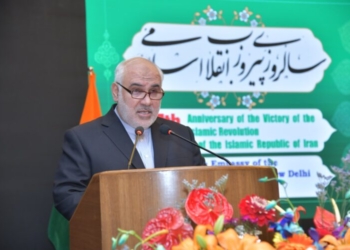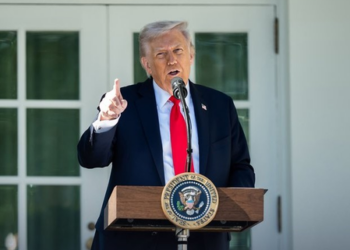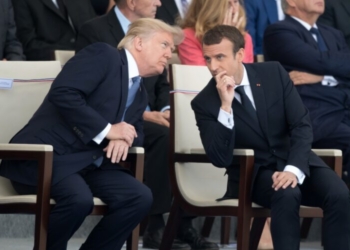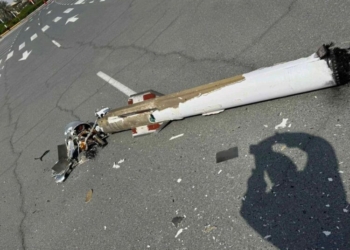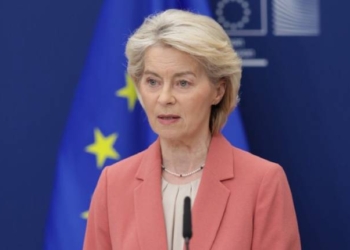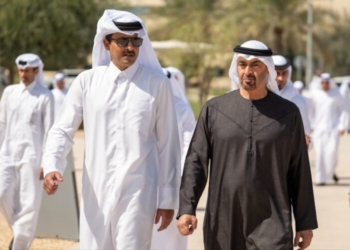Male: India’s High Commissioner to Maldives, G. Balasubramanian on Thursday said that the ties between the two nations remain independent of any third-party influence as the Indian Ocean archipelago occupies a “special place” in India’s ‘Neighbourhood First’ policy.
In an interview with the IANS ahead of Prime Minister Narendra Modi’s scheduled two-day visit to Maldives starting Friday, the Indian diplomat stressed the strengthening of bilateral ties between the two countries while noting that PM Modi would be the first head of State to visit the Maldives after President Mohamed Muizzu assumed power.
Highlighting India’s role in the development of the island nation, Balasubramanian also spoke about several agreements that are expected to be signed between the two nations during Prime Minister Modi’s visit.
Excerpts:
IANS: How is PM Modi’s visit to the Maldives going to boost the bilateral ties?
G. Balasubramanian: This is a very important visit. Prime Minister Narendra Modi is visiting the Maldives on the invitation of President Mohamed Muizzu, on the occasion of the 60th anniversary of their Independence Day. He’s coming on July 25 and will be leaving on July 26.
This is an important visit for strengthening the bilateral relations between our two countries. This visit would be the third time that the Prime Minister would be visiting Maldives — the first being in 2018 and then in 2019. This is also the first visit of a State head under the presidency of Mohammad Muizzu. This is also the first time the Maldives has invited someone to be the guest of honour for the Independence Day celebrations since 2017.
The 60th anniversary of the Independence Day of the Maldives also coincides with the sixtieth anniversary of the establishment of diplomatic relations between our two countries. India was one of the first countries to recognise the independence of the Maldives in 1965. Since then, we have been having very friendly, very close diplomatic relations.
To commemorate this particular milestone of the 60th anniversary of the establishment of diplomatic relations, our Prime Minister and Maldives President will also be releasing a commemorative stamp to celebrate this event. So this is another important milestone in our relationship.
IANS: Do you think that Chinese influence in the region remains a matter of concern?
G. Balasubramanian: I would say that our relationship with any country is a stand-alone relationship. It is independent of the relationship that another country has or what we have with other countries.
Our relationship with the Maldives is based on historical friendship and geographical neighbourhood. Our Prime Minister has very clearly said that, in Indian diplomacy, the ‘Neighbourhood First’ policy plays a major role. And in that ‘Neighbourhood First’ policy, Maldives occupies a special place. So that defines the relationship between our two countries.
IANS: What events are lined up during the Prime Minister’s visit?
G. Balasubramanian: After attending the Independence Day event on July 26, he would be having bilateral meetings with President Muizzu. Other important events that he would be attending would be inaugurating some of the projects that we had undertaken, handing over of them, signing MOUs, and exchanging MOUs. It would be a full schedule for our Prime Minister during this visit.
Both leaders would be reviewing the progress that had been made on the vision document that was declared last year during the State Visit of President Muizzu to India in October 2024, which was a comprehensive partnership on economic and maritime security.
We are also signing some of the MOUs, which are the main part of the official visit.
IANS: What are the new proposed MOUs between the two countries?
G. Balasubramanian: We have been working very closely, and we would be having something on the commercial side, on health, on finance, on the fisheries sector, etc. So these are areas in which we have had very close cooperation, particularly in terms of capacity building and training of people and also, helping set up various issues between the two countries.
IANS: How is India contributing to the tourism sector of the Maldives?
G. Balasubramanian: We are the sixth largest supplier of tourists to the Maldives. Indians are the sixth largest group of tourists who visit the Maldives. Last year, about 140,000 people visited the Maldives. This year, by June, more than 60,000 people have visited from India.
It would be nice to also note that the one millionth tourist of the Maldives in 2025 is an Indian.
IANS: Is there any much-awaited deal between the two countries that might be finalised during this visit?
G. Balasubramanian: There are important areas in which we have been working. We will have an announcement, probably on Fintech. We have already agreed on the terms of reference for starting the negotiations of a Free Trade Agreement. So these are very important areas in which both our countries are working. In addition to that, we would be having cooperation in fisheries, capacity building areas, the digital public infrastructure, the India stack that would be provided, the Indian pharmacopoeia, etc. These are areas which will be mutually beneficial to both our countries.
IANS: Can you elaborate on India’s role in the development of the island nation?
G. Balasubramanian: India has been one of the largest development partners for the Maldives. Since 2014, our assistance has been in terms of infrastructure development, capacity building or even emergency financial assistance in terms of currency swap and other things. The total financial assistance from 2014 is more than $3 billion.
Many of the projects that we have undertaken in the Maldives are high-impact community development projects, which are done through grants from the Indian government. There are various lines of credit projects. There are various buyers’ credit projects.
For example, our Prime Minister would be handing over about 4,000 housing complexes that we had constructed under the buyer’s credit. The other HICDP projects have a direct impact on the community of the Maldives. More than 78 set projects have been undertaken. Some of them would be handed over by the Prime Minister because this is an ongoing cooperation between our two countries.
Under the Line of Credit, some projects have been undertaken, whether in Addu or other parts of the country. Those would also be handed over.
IANS: Is the Prime Minister scheduled to hold any meetings apart from the official engagements?
G. Balasubramanian: Yes, apart from his official engagements, he will have some other private engagements. He’s also meeting the diaspora. He will meet the ITEC (Indian Technical and Economic Cooperation) candidates who have been trained in India. Some people from the ‘Bharat ko Janiye’ quiz will also be there. It is a mixture of both official and private functions that he would be having.





